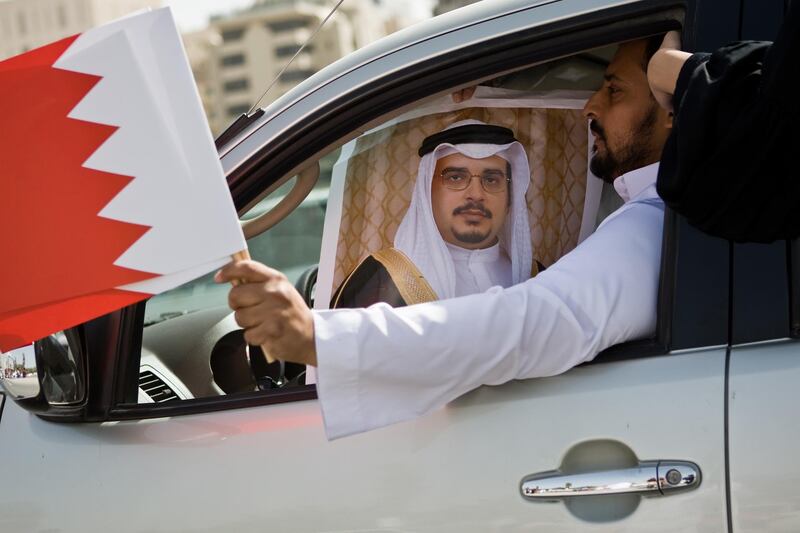Bahrain's elections are set to take place over the weekend amid a widespread crackdown on dissent throughout the small Gulf nation.
The elections come at a time where Bahrain is pushing for economic reform and its government pursuing domestic credibility in light of a recent opposition crackdown.
The vote takes place against a backdrop of a struggling economy, which the government hopes to solve through a recently announced reform package. Saudi Arabia, Kuwait and the UAE, have bought in, pledging $10 billion (Dh367bn) to eliminate the kingdom's budget deficit by 2022.
The incoming parliament will largely be tasked with attracting foreign investors to begin work on the recent discovery of Bahrain's largest oil and gas field.
Approximately 360,000 out of 560,000 Bahrainis are eligible to vote for some 500 candidates from 20 political parties, which are now almost entirely comprised of pro-government candidates.
Barred from the elections are the two main opposition groups, Al Wefaq and The National Democratic Action Society, Wa’ad.
Al Wefaq, a Shiite-majority party, withdrew its 18 parliamentarians from the National Assembly during the 2011 protests. They have called for a boycott of these elections citing political marginalisation.
The group has taken often taken an extreme approach to politics in Bahrain drawing its religious legitimacy from the interpretations of the Ulama Council, a group of Shiite Islamic clerics in Bahrain.
To avoid questions of political legitimacy, the government needs to convince Shiite to turn out despite the boycott. It has encouraged candidates to run as independents, to draw out the Shiite vote. During the 2014 elections, which saw a similar boycott, the government claimed over 50 per cent turnout.
“These elections, therefore, are a test to see how willing the majority Shiite population is to participate despite the opposition boycott and the steps taken by the government against such groups in recent years,” said Miriam Goldman Eps, Head of Intelligence at Le Beck, a consultancy group based in Bahrain.
_______________
Read more:
Bahrain to hold elections on November 24
Bahrain receives pledge of support from GCC peers to help its economy
_______________
Since the uprising in 2011, which was in large part led by the Shiite majority, Bahrain’s government has maintained that opposition groups in the country are funded by external actors, namely Iran but more recently Qatar.
Earlier this month, Bahrain sentenced Ali Salman, a prominent leader of Al Wefaq, to life in prison on charges of spying for Qatar. Bahrain, along with the UAE, Saudi Arabia and Egypt have cut relations with Qatar over accusations of Doha’s interference in their internal affairs.
Bahrain has arrested a number of nationals who have been accused of receiving funding from a former Qatari minister to interfere in the coming elections.
In May of this year, Bahrain's current parliament approved a law barring members of dissolved political parties, including Al Wefaq and Wa’ad, from running in elections.
Eligible citizens will be allowed to vote on November 24 and December 1. Those abroad can cast their votes at their respective diplomatic missions and consulates on November 20 and November 27.
Under the 2002 constitution, 40 citizens will be elected to the Council of Representatives. They will be joined by 40 royal appointees to Bahrain's upper house, called the Consultative Council.
The upper chamber has the power to block legislation by the lower house.
The lower house has the authority to examine and pass legislation proposed by the king or cabinet and also has monitoring powers.





